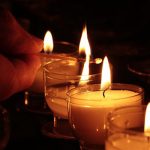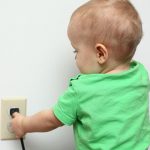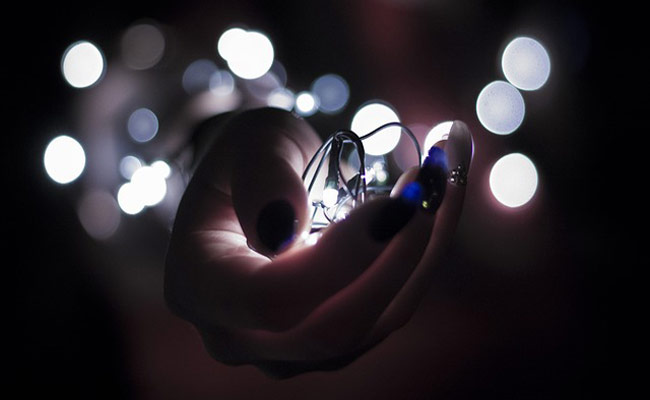
by Electrician Experts | Sep 6, 2017 | Saving Power
Do you dread the thought of that power bill coming? If so, consider ways in which you can cut back on your use of electricity. You don’t have to be cold all winter in order to save. There are many easy ways in which you can lessen the use of power without being inconvenienced. Here are 20 electricians tips.
- Choose heaters and other appliances by their star ratings. Avoid fan heaters which are very hard on power.
- Dry clothes on the clothesline, a veranda line or a clothes airer inside, rather than using a tumble dryer, as these gobble power up.
- Use cold water for doing the laundry.
- Have solar assisted hot water, with the electric boost set to cut in during off-peak times.
- A lot of heat is lost through windows. Dark or rubber back fabric is good for curtains to keep heat in the house.
- Sliding windows and doors have a gap in the middle where air can escape. You can get sealing tape to minimise loss in this way.
- Use a sausage at the base of the doors, especially external ones.
- Look for gaps around the edges of doors. Wait until dark and have someone shine a torch from outside to inside. If there’s a gap, you’ll see the light from the inside. Use gap-filler tape available from hardware stores to seal it.
(more…)

by Electrician Experts | Aug 6, 2017 | Electrical Advice
Some areas get a lot of blackouts, especially in rural areas. Whether you get a lot or a few, being suddenly and unexpectedly without power is annoying, especially at night when you are depending on it for light and heat. It’s a good thing to be prepared for power loss because it can happen at any time, not just in a storm.
Here are some tips to help you cope with a blackout.
- Keep a torch in the same place all the time so you know where it is.
- Phone an electrician if yours is the only house blacked out.
- Have a supply of candles and matches, or some other means of lighting your night after the power goes out. Make sure everyone knows where they are.
- When using candles, make sure they are stable and out of reach of children. Don’t place them under overhead cupboards or near curtains.
- If it is really cold weather, layer up with clothes and add a coat or dressing gown over the top. You may also need a beanie and gloves, along with thick socks.
- If it’s night time, just go to bed for warmth.
- Close the doors and windows to keep the house warm.
- Have an uninterruptible power supply with battery backup for your computer, so you’ll have a chance to power down properly without losing any work. Unplug the computer and other sensitive electrical equipment.
(more…)
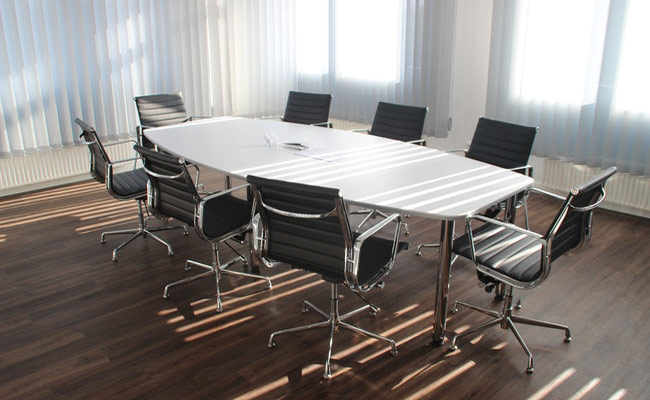
by Electrician Experts | Jul 21, 2017 | Saving Power
A business uses much more power than a home because it has multiple lights that must be on during the whole of the business day and security lights on at night, not to mention heating and cooling for customers. Then there is always a need for the phone, Internet service and the other office equipment that uses a lot of power to consider. Some businesses use more than others, especially those in the hospitality industry where there is a lot of cleaning or cooking to be done. So how can you save on the cost of power in your business?
- Be the one in control of heating and cooling. Reducing the heat by just one degree can save up to 8% on the heating bill.
- Depending on how your business premises are oriented, you may be able to make use of sunlight to help warm the interior if you open blinds and curtains.
- Increasing the fan speed will often warm a room more even without turning up the heating, as the fan will circulate the warm air more efficiently.
- Close doors to colder rooms on cold days and hotter rooms on hot days to prevent loss of hot or cold air.
- Make sure all the windows and doors are closed when running air conditioning.
- Choose premises that are well insulated.
- Switch existing lighting out for a more modern option. Fluorescent lights are more efficient than traditional light bulbs, while LED lighting is more efficient than fluorescent.
- Cleaning windows and external glass walls can help to make the place brighter and reduce the use of lights.
(more…)
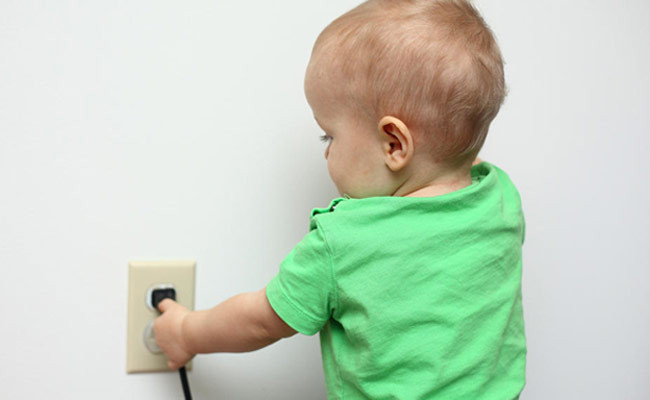
by Electrician Experts | Jul 5, 2017 | Safety Tips
Statistics show that it’s 9 year old boys who are most at risk of electric shock because they seem to be fascinated by how things like toasters work and are likely to poke a fork down into small appliances. It’s important to know that there is a risk of shock if the plug is still in the socket, even if the toaster is switched off. However, toddlers are also at risk simply because they tend to do things you don’t expect and can move very quickly.
For instance, many toddlers love to put things into containers and think it’s fun to throw their dummy or toys into the bath if they get a chance. This can still be a game to them when a sibling is in the bath. In fact, one toddler threw a fan heater that was switched on into a bath full of water where his older brother was playing.
The result could have been fatal except that the cord was a little short and the force of the throw jerked the plug far enough out of the socket to break the connection. Other toddlers see a hole in the wall and want to poke something into it. They don’t understand that it’s an electric socket. So here are some tips to keep your toddlers safe from electricity.
- Only have a wall heater in the bathroom. This makes it safe from water splashes as well as being picked up by a toddler.
- Use safety plugs on all your power points, even the ones you don’t think your toddler can see or reach.
- Don’t leave cords within reach of toddlers as they are sure to pull them or even bite them.
- Don’t leave cords across a walkway, even under a mat as they can still be a tripping hazard and it forces wear and tear onto that part of the cord.
(more…)

by Electrician Experts | Jun 4, 2017 | Electrical Advice
In Australia, most electrical work must be done by a qualified and licensed electrician. It is not safe to do your own work, even if it may look simple. Electricity is a wonderful thing, but like many other modern conveniences it has a dark side; it can injure or kill if used wrongly. Often, we don’t even think of this as we go about our daily lives using the main source of power we’ve known since childhood. So when exactly do we need an electrician? The electrician should –
- Repair all electrical appliances
- Replace a light switch or a power point
- Change the position of any electrical wiring
- Replace old wiring or install new wiring
- Change or mend a plug on the end of a power cord
- I new lighting and power points in a renovation, shed or patio
- Install ceiling fans
- Check out the old wiring in your home
You may think it would be easy to simply look at the wiring, but there could be signs of wear and tear that you could see but not recognise for what they are, unless you’ve had a lot of experience or training. Plus, the electrician will have a good ladder and insurance if he happened to fall and be injured. It’s not even that easy to get into a manhole and its harder still to get out of it, so leave it to those who are used to doing it.
(more…)







